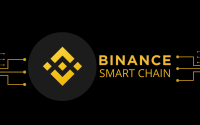Hong Kong Implements Licensing Regime For Virtual Assets
Leung Fung Yee, the Chief Executive Officer of the China Securities Regulatory Commission (CSRC), recently addressed the challenges faced by the cryptocurrency market during a speech in Bangkok. She acknowledged the difficult period experienced by the industry last year, characterized by the default and bankruptcy of several virtual asset-related enterprises.
She said that since the FTX bankruptcy, jurisdictions that used to welcome crypto assets began to tighten regulations. Cryptocurrencies are banned in mainland China, and Hong Kong's cryptocurrency licensing system is a clear example of China's "one country, two systems".
— Wu Blockchain (@WuBlockchain) June 24, 2023
Leung emphasized that such risks have the potential to spill over to the entire industry, impacting investor confidence. To counter these challenges, she stated that bringing virtual asset service providers under the regulatory system is crucial in embracing innovation and strengthening market trust.
Virtual Asset Regulation
Leung highlighted that the new licensing regime for virtual asset service providers, implemented by the CSRC, became effective this month. This comprehensive regulatory framework covers all aspects of public interaction with virtual assets, ensuring investor protection while considering the risks faced by financial institutions. The announcement of this licensing regime has garnered attention in the global fintech community. Following the bankruptcy of FTX, jurisdictions that once welcomed crypto assets have begun tightening regulations, often emphasizing enforcement as a means of regulation.
Leung emphasized Hong Kong’s transparent, consistent, and predictable approach to regulating virtual assets. While cryptocurrency trading is prohibited on the mainland, Hong Kong’s new licensing regime stands as an example of the “one country, two systems” principle. Leung clarified that Hong Kong does not seek to become a cryptocurrency trading hub. However, she recognized the importance of cryptocurrency trading within the virtual asset ecosystem. She welcomed the application of relevant technologies in financial services, such as bond tokenization and investment funds.
Fostering Innovation and Investor Protection
While acknowledging that Hong Kong has a long way to go in establishing a virtual asset ecosystem, Leung expressed optimism that the convergence of the virtual asset fintech community in Hong Kong would accelerate its development. The SFC’s goal is to foster an environment where relevant technologies and innovations can thrive while ensuring investor protection and market integrity.
Leung’s remarks underline the significance of regulating virtual assets and the commitment of the CSRC to create a secure and trusted environment for investors. As the cryptocurrency market continues to evolve, it remains crucial for regulators worldwide to strike a balance between innovation and investor protection, promoting sustainable growth within the industry.



